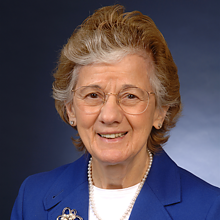Developing Algorithms to Predict the Spread of Infectious Diseases

The past 20 years have seen numerous epidemics break out across the globe: SARS, H1N1, Ebola, Zika, and most recently, COVID-19. These diseases have impacted the lives of billions, and lead to millions of deaths around the world. A multitude of factors can cause an infectious disease to develop and spread, including climate and poor sanitation, but even with knowledge of these factors it is difficult to predict when outbreaks will occur. Using previous research on the prediction of cholera outbreaks, however, researchers at the University of Maryland have developed algorithms that can predict the spread of infectious diseases from a local to global scale.
Early work on the prediction of infectious diseases began in the 1970s and 1980s, with the study of cholera in the Chesapeake Bay. Researchers then examined factors like water temperature and salinity as predictors of cholera outbreaks, and later studies integrated the use of satellite sensor data on a number of environmental and infrastructural measures as predictive factors.
Rita Colwell, Distinguished University Professor at the University of Maryland Institute for Advanced Computer Studies (UMIACS) and a pioneer in infectious disease outbreak prediction research—including the work above—sought to utilize and expand on prior satellite sensor models to forecast outbreaks of other diseases, including the risk of COVID-19 in the U.S.
The algorithms—developed using weighted averages from a public dataset—analyze several thresholds on weather, climate, and sociological, epidemiological, and environmental processes related to the abundance, survival, and emergence of new pathogens. The algorithms can also be applied to new pathways of pathogen emergence or transmission using common pathogen footprints. This tool can give public health officials a much-needed advantage to combat disease, and has the potential to help save millions of lives. Colwell expects that satellite sensors will become a major international public health tool to monitor communicable diseases.
The project was funded primarily by NASA, with funding also from the National Science Foundation, the British Aid Agency, and the United Nations. Colwell's collaborators include Anwar Huq, a research professor at UMD’s Department of Cell Biology and Molecular Genetics, and Antar Jutla from the College of Engineering, University of Florida.
Their invention, “Predictive Algorithms for Infectious Diseases,” was nominated for a UMD Invention of the Year award in the Information Sciences category. Winners were announced on May 3, 2022, at Innovate Maryland, a campus-wide celebration of innovation and partnerships at UMD.
This article was published by the University of Maryland Division of Research
